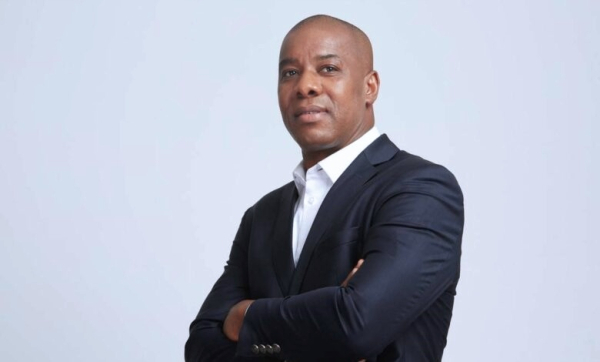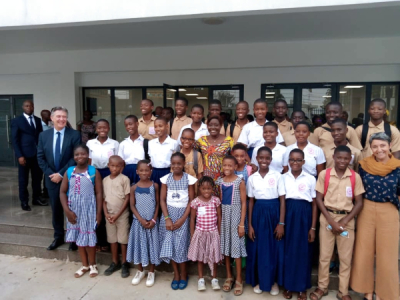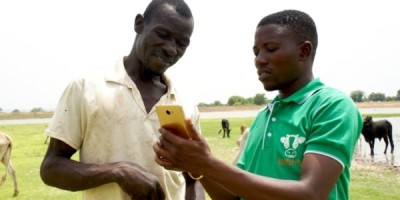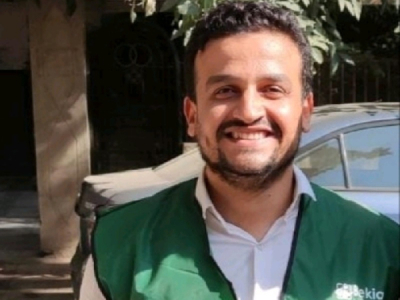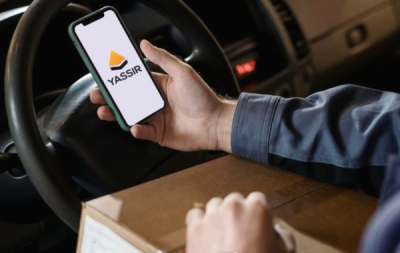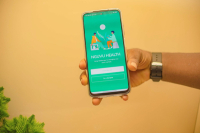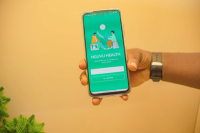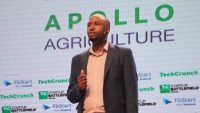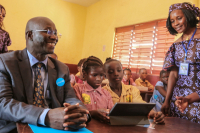The solution has built a high education network to allow universities to access a global student market while at the same time allowing students to study at "leading universities."
Educatly is a digital solution developed by an Egyptian startup to help students access various higher education opportunities. It connects students and universities with the aim of facilitating abroad studies for students and allowing universities to reach bright students.
"Students want to have transparent access to all relevant opportunities out there while getting as personalized support as possible to reach the best possible decision. At educatly.com, users can browse through the largest up-to-date database globally with more than 120,000 higher education opportunities worldwide and filter according to their profile and preferences to find the programs most relevant for them," said Educatly co-founder and COO Abdelrahman Ayman in 2021 when the startup raised US$1 million in pre-seed funding.
The solution has a mobile application available on Android and iOS. Users need to register either as students, university representatives, or as student ambassadors.
The startup "aspires to build the world's most comprehensive educational network to showcase all schools/colleges, programs as well as scholarships, language courses, professors, students, and alumni." It claims over 100,000 students from 90 countries in its network, and partnership with 3,000 universities with more than 150,000 active users on its platform. "We leverage the latest technologies to narrow down the most relevant programs to support the decision-making process for them and offer personalized support through our network of consultants and ambassadors," Abdelrahman Ayman says.
Adoni Conrad Quenum
After his studies, he worked in senior positions at large financial institutions. He joins Mastercard with some 22 years of professional experience to support the payment and tech company's development in Africa.
Jean-Charles Yallet (photo) is a finance expert and a graduate of the University of Cocody where he obtained a master's degree in finance in 1997. He also holds a master's in finance and business strategy (2004) from Oxford Brookes University. He was recently appointed "Country Lead for Mastercard Sub-Saharan Francophone Africa (FSSA) operations across the Middle East and North Africa (MENA) West cluster."
His appointment (effective since September 2022 according to his Linkedin profile) was announced on January 17, 2023. In that role, he will oversee the development of Mastercard's services and innovation across 17 countries. He will also help advance digital and financial inclusion.
"I am thrilled to join Mastercard at this exciting time as we continue to innovate and use the reach of our network to digitize the payments sphere, bringing more people into the financial ecosystem. I am determined to capitalize on the great work we have already done as part of our ongoing commitment to making transactions simpler, safer, and smoother across the region," he said according to a French release.
The new position enriches his over 22 years of experience in the banking and finance industry. Indeed, between 2009 and 2012, he served as senior relationship manager and country head of wholesale banking with the banking group UBA. Later, for ten years, he assumed various positions at Standard Chartered Bank where he started as director of transaction banking in 2012.
Melchior Koba
Over the past few years, Côte d'Ivoire has made a number of investments to advance remote education. With the new platform, the country positions itself as a regional leader in the digitalization of education.
Last Tuesday, in Abidjan, the Ivorian Minister of National Education and Literacy, Mariatou Koné, inaugurated the platform "Mon école à la Maison," dedicated to remote education.
The new platform aims to support both students in and out of school in their daily learning. For Mariatou Kone, its launch carries several meanings.
"The first is that Côte d'Ivoire has been involved in distance learning initiatives for several years and the government intends to stay the course to develop this digital and innovative educational offer. Secondly, the Ivorian government offers free lessons, exercises, films, and even textbooks to students, parents, and teachers who will regularly visit the platform." "This is essentially educational but it is also a tool for interactive dialogue," she added.
For several years now, Côte d'Ivoire embarked in the digitization of its education sector. After the political and military crisis, which shook the country in 2004 and led to the closure of schools, the government started dematerializing education by launching several projects. In 2020, the coronavirus pandemic accelerated the projects being implemented.
The "Mon école à la Maison" platform is one of the initiatives born from Covid-19. It is a directory of all the resources of the national education system. It has nearly 4,000 lesson sheets, 5,000 exercises and primary school textbooks, 624 educational clips of 15 minutes maximum, entire courses, 2,000 interactive exercises (Quizzes), and at least 150 practical worksheets.
According to Marc Vincent, UNICEF representative in Côte d'Ivoire, this platform will benefit more than 6 million children in preschool, school, and general secondary education. "This initiative is the first on the African continent. Côte d'Ivoire is now the leader in Africa in the use of technology," he added.
Samira Njoya
The move aims to facilitate access to the vaccines in regions where they would otherwise be inaccessible, causing farmers a lot of harm.
Cowtribe is a digital solution developed by a Ghanaian startup. It helps farmers, in rural areas, buy animal vaccines by either dialing a USSD code, sending an SMS, or reaching out to a network of community agents. Since its launch in 2017, the startup behind the solution has raised close to US$1.4 million to support its growth.
When using the solution for the first time, farmers have to register by dialing the dedicated USSD and following the guideline. This is a simple yet effective solution since most Africans are already used to USSD technologies, which they use almost daily to check their airtime balance, buy airtime or carry out mobile money transactions.
In 2018, Cowtribe claimed over 30,000 farmers served in 120 villages, and more than 9,000 vaccine requests processed for over US$100,000 worth of vaccines sold. For Cowtribe co-founder Peter Awin, more efforts need to be made because African farmers are still losing more than US$3 billion to animal diseases.
"While farmers need a constant supply of safe vaccines that could prevent these losses, most of them live in rural and hard-to-reach places outside of the functional delivery radius. […] Providers lack visibility to efficiently coordinate the delivery of services to these farmers. Ultimately, over 70 percent of livestock vaccines manufactured never make it to the farmers who need them most," he said.
This year, the startup is working to reach a million farmers with quality and affordable vaccines. It also plans to expand into the Malian and Burkinabe markets. In 2018, it won the national phase of the Seedstars World competition.
Adoni Conrad Quenum
He fights global warming by improving waste management. His startup exchanges waste for basic products to encourage users from whom the waste is collected.
Alaa Afifi (photo) is an Egyptian entrepreneur and the co-founder/CEO of Bekia, a waste management startup.
The startup, founded in 2017, leverages technology to find solutions to issues related to climate change and pollution. It for instance set up an exchange system that allows customers to trade recyclable waste for groceries, subway tickets, medicine, or other household items. Also, it repairs and resells discarded electronics if they are still reusable.
"We in Egypt don’t have startups that can invest in waste and its management. We only have people who can collect the waste from the streets. We need a solution to the problem. So we thought of using the waste management problem as an opportunity because we have a lot of ‘valuable’ waste in our homes that simply end up on the streets," Alaa Afifi said in 2021 when asked what prompted the creation of Belkia.
In January 2023, the startup was announced in the inaugural cohort of the new US$2 million fund launched by VC fund Catalyst Fund. It will thus receive US$100,000 in equity investments and US$100,000 in hands-on business development support.
Its CEO entered the professional world in 2015 when he joined the online marketing team of eMarketing Egypt. Concurrently, he was a community manager for the local subsidiary review site Jeeran. From 2015 to 2008, he also worked as a project manager for the online shopping company herzon.com. The Google Adwords specialist is, since April 2019, a member of The Global Shapers Community.
Melchior Koba
For months now, Yassir has faced a number of accusations in Tunisia. The latest is the unfair competition accusations leveled against its cab services.
Last Monday, Algerian transportation startup Yassir received a warning from the Tunisian Ministries of Transport and Technology. In a joint statement, the two ministries accused Yassir of violating the law by calling out to individuals to earn money by transporting passengers.
"This type of irregular cab service is exercised outside the legal framework. It is a dangerous innovation because such types of transport services are subject to authorization. It is an infringement of the rules of fair competition. The competent ministries will end this phenomenon to protect the public," reads the statement.
The warning comes after several complaints by the Tunisian individual cab drivers' Union. Last Monday, Fouzi Khabouchi, the union's chairman, said he filed two complaints against Yassir. One of the complaints was filed with the Public Prosecutor's Office and another to the Financial Analysis Commission of the Central Bank of Tunisia to warn against multiple offenses including money laundering.
Following those accusations, the start-up that provides cab and food delivery services declared that only official Tunisian institutions could request explanations about its activities or mediate to resolve any dispute that may arise between the start-up and other professional or private bodies.
Let's note that in November 2022, Yassir became the most-valued North African startup after raising US$150 million, an incredible amount for its development stage.
Samira Njoya
With the support of telecom operator Orange, Morocco, which plans to become a major tech hub in Africa, will benefit from modern networks and socioeconomic opportunities that are expected to reinforce its regional position.
Orange Morocco recently signed a deal with Medusa Submarine Cable System for the construction of a subsea cable that will enhance digital interconnection between Morocco and Europe.
In a release dated January 16, 2023, Hendrik Kasteel (photo, right), CEO of Orange Morocco, explains that the interconnection will reinforce Morocco's position as a digital gateway to Africa while confirming the country's digital sovereignty.
"Thanks to the project, Orange Morocco will contribute to the construction of the first subsea cable to interconnect the main Mediterranean countries, in partnership with Medusa. Specifically, the system will connect the two shores with 16 landing points in countries like Morocco. Under its open innovation policy, Orange Morocco will share the new infrastructure with operators that wish to use it," the release informs.
The cable system will also include segments that will offer up to 24 fiber pairs and a capacity of 20 Tbps per fiber pair. The 8,760 kilometers long cable will be the first and longest submarine cable to connect five Mediterranean countries (Cyprus, Spain, France, Italy, and Portugal) to four countries in the European Union's southern neighborhood (Morocco, Algeria, Tunisia, and Egypt) at a total cost of €342 million. The system will be partially operational in Europe by the end of 2024, and in the Eastern Mediterranean region during the first half of 2025.
Orange Morocco also plans to integrate the first African fiber optic backbone, Djoliba, which is the result of the interconnection of more than 20,000 km of Orange Group's terrestrial and subsea infrastructure in West Africa, for a secure end-to-end link between eight countries in the region.
Samira Njoya
Mental health is a taboo subject in most African societies. Yet, according to a 2017 report by the World Health Organization, more than 29 million Africans suffer from depression.
Nguvu is an e-health solution developed by a Nigerian startup. It gives users access to mental health experts online.
"Our customers are able to communicate – via text, audio, and video – directly in-app with their therapists and are able to schedule live video sessions with their matched therapists. This is particularly useful at such a time as this, post-pandemic. The effects of the COVID-19 pandemic have made mental health therapy more important than ever," explained Joshua Koya, Nguvu's co-founder, and CEO, in December 2021.
Users can access the services offered by the e-health startup using either its Android/iOS apps or by visiting its web platform. They can register, pass a test, and eventually get connected to a therapist. They can also choose between video consultations or text therapy. Currently, the Nguvu Android app has been downloaded more than 10,000 times on Playstore.
Let's note that some of the services offered by Nguvu are free. They include for instance free mental health screening. Meanwhile, additional text therapy services cost NGN3,000 (about US$6.5) weekly, NGN10,000 monthly, NGN27,000 quarterly, and NGN100,000 annually. For video therapies, each session cost NGN7,500 while the 4-session bundle costs NGN27,000.
For the time being, Nguvu operates in Nigeria and Kenya and dreams of conquering the world in the coming years. "Our vision is to extensively build tech solutions that revolve around preventing mental disorders from happening and correcting existing disorders," Joshua Koya indicates.
Adoni Conrad Quenum
He is dedicated to dynamizing agriculture for smallholder farmers. After years of ^professional experience with agribusinesses, he co-founded a startup that offers financing and technical support to farmers.
Benjamin Njenga (photo) is a Kenyan entrepreneur who holds a Masters in Finance and a bachelor's in agribusiness and management. He is one of the co-founders and chief customer officer of Apollo Agriculture, an agritech that offers financing and counseling to smallholder farmers.
The agritech, founded in 2016, streamlines access to finance for unbanked farmers and even helps reduce the costs for them, therefore facilitating productive and profitable operations for the farmers.
As Apollo Agriculture's Chief Customer Officer, Benjamin Njenga leads most aspects of the start-up's operations, from customer acquisition, logistics, and delivery to repayment collection, tracking, and evaluation. He oversees more than 25 employees, spread across the corporate team, call center, agri-retail partners, and field agents. In March 2022, his startup raised US$40 million in Series B financing to finance more smallholder farmers across Africa.
Benjamin describes himself as a visionary leader. His professional career started in 2008 when he joined telecom operator Safaricom as a customer support. From 2011 to June 2013, he worked as a monitoring and evaluation specialist for Syngenta Foundation for Sustainable Agriculture. Upon leaving that foundation, he joined the agricultural insurance company ACRE Africa where he worked until the creation of his agritech startup Appolo Agriculture. With the Aagritech startup, he successively held the positions of business analysis manager, deputy general manager, and chief customer officer.
Melchior Koba
The coronavirus pandemic and the Ebola outbreak fragilized the education system in Guinea. This highlighted the need to set up innovative tools to back the education system.
Last Friday, the United Nations Children's Fund (UNICEF) and the Guinean Ministry of Pre-University Education launched the pilot phase of the e-learning platform "Learning Passport," at Gbessia Port 1 elementary school in the commune of Matoto, Conakry. The new digital platform, created to support student learning, will provide continuous access to educational resources for children, youth, and teachers.
According to Dr. Adama Ouedraogo (photo, left), UNICEF's Acting Representative in Guinea, the new platform will help "improve teaching and learning and enhance the skills and knowledge acquired both formally and informally." "To students, it means continuous access to the curriculum and additional learning materials. To teachers, it means steady access to training opportunities and educational support," he added.
Over the four coming months, the platform will be test-run in two schools (Ratoma Centre and Gbessia port 1) in Conakry. The National Institute of Preventive Archaeological Research (INRAP), with the support of UNICEF, will assess teachers' and students' ability to access the digital content available on "Learning Passport."
The platform, delivered by UNICEF and powered by Microsoft Community Training, was developed with a unique suite of online and offline features and capabilities. It will first be deployed in places with intermittent or no Internet connectivity - often places where children find themselves unable to access quality digital educational tools and content.
Samira Njoya
More...
The digital component of Congo's 2022-2026 National Development strategy plans the construction of a number of tech infrastructures. To fulfill that ambition, the government is multiplying partnerships with key partners.
Last Friday, Congolese Digital Minister Leon Juste Ibombo welcomed a delegation of the Dubai-based consortium Presight ai Limited-G42.
During the audience, the parties discussed the finalization of a recent partnership aimed at funding several projects that will improve digitization and the construction of key tech infrastructures, which will benefit the population.
"Our partners came with documents that will allow us to reach out to the Ministry of Finance for the financing agreement before the implementation phase. With the negotiations concluded, we will move to finalize the project," Leon Juste Ibombo said.
The visit of the Emirati team is the result of a cooperation process that started a few months ago. Indeed, on March 28, 2022, in the United Arab Emirates, Congo signed a partnership agreement with Presight ai LimitedG42 to combine their digital transformation efforts and expertise.
The agreement is one of the partnerships sealed by Congo for the implementation of its 2022-2026 national development strategy for a strong and diversified economy. In recent months, the country has signed similar agreements with international firms including Indian ATDXT and Canadian Casimir Network. The agreement with Casimir Network provides for the training of local tech talents as well as the construction and operationalization of a data center that will host the country's blockchain services.
Samira Njoya
The solution aims to help users save time and cost in a context marked by accelerated digital transformation.
BuuPass is a tech solution developed by a Kenyan startup. It allows users to buy, air, and train tickets or compare the prices when multiple sellers exist.
For its co-founder Wyclife Omondi (photo, right), "It takes travelers unnecessary time and money to compare platforms while trying to book tickets. With BuuPass digitalization, both challenges are taken care of because we cut costs for users or commuters and reduce administrative overhead for bus operators by offering a fleet and parcel management solution."
The solution has an Android app that enables users to create accounts, access various features, and even pay tickets via mobile money. On PlayStore, the app has already been downloaded more than 10,000 times.
Let's note that Buupas also has an API that enables companies to get listed. Currently, Buupas claims over 9 million bus tickets sold online. Before becoming BuuPass, It was MagicBus Ticketing. Under that name, it won the 2016 Hult Prize Challenge, going home with a US$1 million check.
Adoni Conrad Quenum
The investor sees entrepreneurship as a tool to resolve the most complex challenges in Africa. She, therefore, invests in entrepreneurs through her VC firm We Fund Women.
Hope Ditlhakanyane (photo) is the South African investor who founded VC firm We Fund Women to support women-led businesses' growth by giving them access to capital.
Her VC firm, launched in 2020, enables angel investors to invest in early-stage gender-smart startups easily. Its ambition is to support 100 gender-smart startups by 2025.
"We Fund Women is a gender-lens investing community so we aim to do three things. Firstly, we want to amplify the stories of different women entrepreneurs across the continent by giving them the platform to talk about their journeys. Secondly, we aim to connect capital allocators and people who can provide growth support to promising women with great innovations. Overall, what we're trying to do is leverage community to catalyze the move towards gender equality on our continent within the VC space," Hope Ditlhakanyane explains.
The VC investor is also the Head of venture sourcing for VC firm Founders Factory Africa, which she joined as a venture sourcing lead in January 2021. With Founders Factory Africa, she headed investments in several firms including Pneumacare, Zuri Health, Baia, Vitruvian, and Tibu Health.
For MEST Africa, which she joined as a venture partner in 2020, she worked with portfolio companies in four markets: Ghana, Nigeria, Kenya, and South Africa. In 2019, she worked for consulting firm Kearney as a Senior business analyst.
Thanks to her works, the Cape Town University graduate made it to Yahoo Finance and Mail & Guardian's respective lists "200 Young South Africans" and "100 Women Future Leaders."
Melchior Koba
He embarked on entrepreneurship early while still working for financial institutions. His fintech aims to provide clients with automated tools to manage investments in several instruments and asset classes.
Reda Hachimy (photo) is a Moroccan entrepreneur and the founder/CEO of fintech startup Capital Quant Agency, which specializes in financial and capital markets.
Capital Quant Agency, founded in 2019, provides financial institutions, trading rooms, asset managers, and institutional investors with a powerful capital and financial markets decision-making software SaaS adapted to their specific needs. Its software helps clients evaluate investment opportunities and optimize their portfolios.
" Capital Quant Agency's main mission as an innovative startup is to develop for its clients, notably trading rooms and asset managers, a powerful, scalable, and modular capital market SaaS software that will help them achieve improved operational and strategic performance," Reda Hachimy said in December 2022.
In May 2022, he founded "Annuaire des consultants," an exclusive network of French-speaking consultants, consultancy firms, and experts. The online directory aims to showcase its members and improve their visibility with institutions seeking experts for their projects. Doing so, it expects to help members land impactful missions in Morocco and abroad.
The founder's professional experience consists of stints with financial institutions. In January 2020, he worked for the Moroccan Interprofessional Pension Fund as a data scientist. In February 2021, he also worked as a quantitative analyst for the investment bank Valoris Group. From February to April 2021, he worked in the markets division of Citibank.
Let's note that in 2022, Capital Quant Agency was crowned Africa's WealthTech Company of the Year and Best FinTech Solutions Provider in the MENA region.
Melchior Koba



